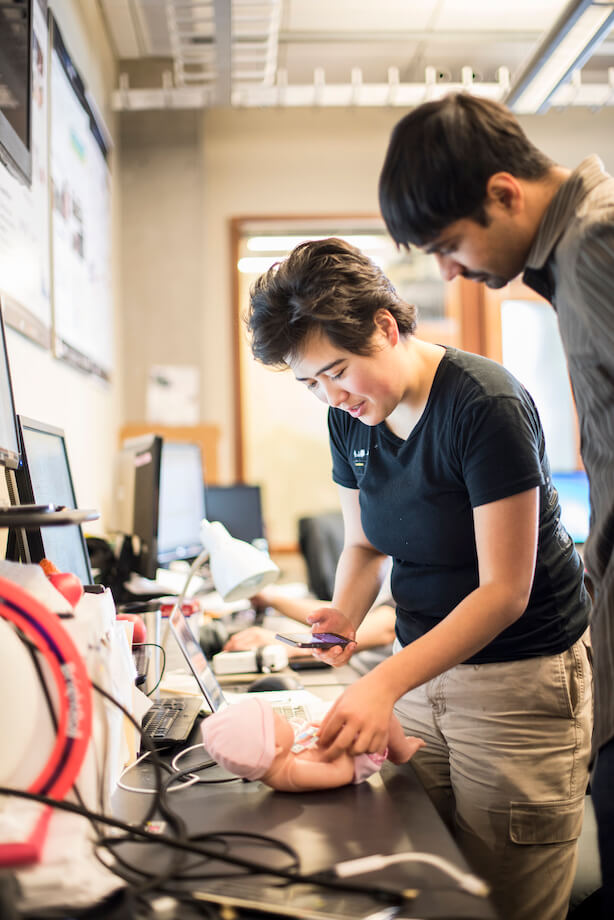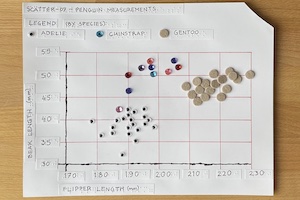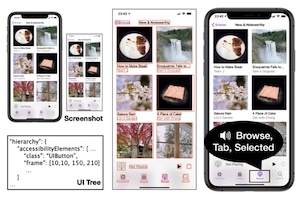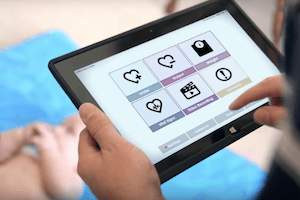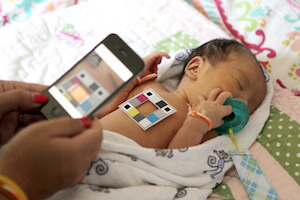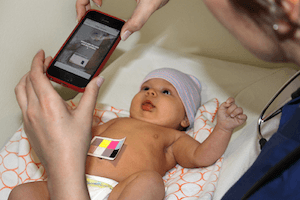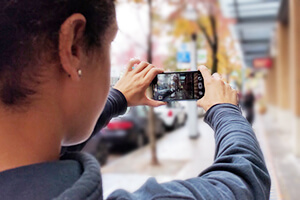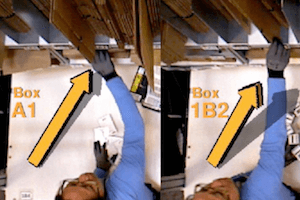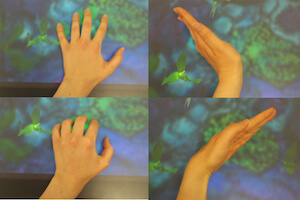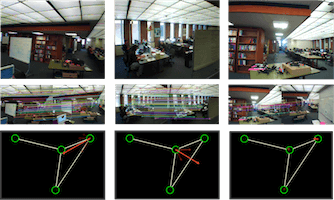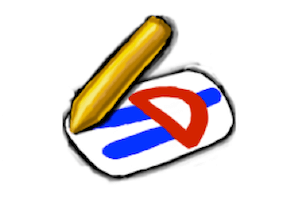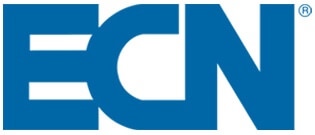Interdependent Variables: Remotely Designing Tactile Graphics for an Accessible Workflow
Publication
Video
Supplemental Material
My colleagues and I shared our experiences of working together, as a team of blind and sighted researchers, on creating an accessible workflow for remotely collaborating on data visualizations. In this experience report, we outline our process for developing and incorporating tactile graphics, share lessons and tips, and advocate the importance of treating and supporting access work as a collective responsibility.
Screen Recognition: Creating Accessibility Metadata for Mobile Applications from Pixels
Publication
Video
Supplemental Material
Screen Recognition applies computer vision to automatically infer accessibility metadata for mobile apps from their pixels. Work from this project was published at CHI ’21 and released as an accessibility feature in iOS for VoiceOver.
During PhD
AI for CHAMP (Cardiac High Acuity Monitoring Program)
Video
During an internship at Microsoft Research, I worked on improving CHAMP, a system for monitoring infants with single ventricle heart disease. I communicated with medical partners at Children’s Mercy Hospital, concretized technical goals, formulated methodology, wrangled and pre-processed data, developed prediction algorithms, and drafted the team’s future work. Insights from my work have already influenced clinical practice, with the potential for further impact as the project develops. Highlighted on MSR's Instagram. Published as part of dissertation.
Use of a Smartphone App to Assess Neonatal Jaundice
Publication
This project is follow-up work to BiliCam, in which we made modifications to the BiliCam system and ran larger study to validate its efficacy at screening newborn jaundice. This study spanned across 7 different sites around the country to broaden the diversity of skin tones in our dataset. From our dataset of samples from 530 newborns, BiliCam demonstrated medically accurate estimates. Our findings are published as a journal paper in Pediatrics, August 2017.
BiliCam: Using Mobile Phones to Monitor Newborn Jaundice
Publication
Patent #1
Patent #2
Poster
Talk Slides
Video
This project investigates how to use smartphone cameras to screen newborns for dangerous levels of jaundice — a medical condition characterized by yellowing of the skin. I work in close collaboration with UW Medical Center to develop data collection procedures and software, apply computer vision to parse images, and use machine learning to estimate jaundice levels. Work from this project was published as a paper in UbiComp 2014 with an Honorable Mention Award, and resulted in two patents, and current commercial development.
TeleTourist: Immersive Telepresence Tourism for Mobility-Restricted Participants
Patent
Poster Abstract
Poster
During an internship at Microsoft Reserach, I conceived and developed a prototype of TeleTourist, a system that uses video calls with strangers to share experiences for people with mobility restrictions. I interviewed individuals with mobility restrictions as formative work, designed system features, and implemented a subset of them for a prototype. This project was published as a poster at CSCW '16 and resulted in a patent.
Perspective Aware Projected User Interfaces
Patent
Talk Slides
During an internship at Amazon I designed, developed, and evaluated eyes and head tracking related user interface elements to use in enhanced reality interfaces in fulfillment centers. I combined concepts from computer graphics with HCI to produce several prototypes and demonstrated the system in its intended environment. This work resulted in a patent.
Undergraduate
Microsoft Surface for Stroke Rehabilitation
Publication
Talk Slides
As part of a four-person team, I designed and developed technology to motivate and assess rehabilitation for stroke patients affected in their upper extremities, using the Microsoft Surface. We interviewed stroke patients and physical therapists, designed a rehabilitative game played on the Microsoft Surface, produced a prototype, and ran user study with stroke patients. Our work was presented at CWIC '12 and published in a note at CHI '12.
Accessible Aerial Autonomy
Publication
Poster
Talk Slides
Video
I created and explored vision-based localization algorithms for aerial robots as part of a team of five students. We prototyped autonomous cooperation between ground-based and airborne robots and demonstrated localization for a quadrotor helicopter toy using only a built-in camera. We presented our work as demos at GCER '11 and AAAI '11, a talk at CWIC '12, and a publication in TePRA '12.
LogiSketch: A Free-Sketch Digital Circuit Design and Simulation System
Talk Slides
I helped developed software for tablet PCs to recognize and simulate hand-drawn logic circuits as part of a siz-person team. I specifically focused on methods to refine sketch recognition and refactoring code. I helped the team with user interface design and circuit simulation. The software was then rolled out and used in Harvey Mudd College’s introductory computer science course.
The Automated Australian Chook Gate
Tech Report
I was part of a four-person team to design a device that automatically opens and closes a chicken coop for a client in Australia. With it, his chickens (a.k.a. chooks, in Australia) could go outside during the day and be safe from predatory foxes at night, regardless of his availability. We designed and developed a system, including a functional prototype, regularly communicated with our client, and delivered a final tech memorandum & presentation.

